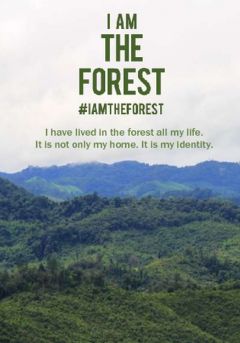Resource information
I am very glad to have this opportunity to be at the World Forestry Congress.
My name is Theya Chaw from Layshi township, Khantee district, Sagaing region of the Republic of the Union of Myanmar. I am from the Naga ethnic group, and come from a remote area near the tri-junction of India, China and Myanmar.
Where I come from, land is divided and ruled according to our local ancestral customs, and traditionally managed without the main purpose of forest conservation. In the past, local communities made their living through Taung-ya or shifting cultivation.
However, starting from 1993, through the endeavours of our local traditional ancestors, the Taung-ya cultivation system was gradually reduced and now settled farm lands are more prevalent. This conversion was for the sake of easing labour intensive work and time, however local people did not always look after these practices in a careful way.
13th December 2013, a day I remember clearly, was the day I first went to a training on climate change and REDD+. It took place in Layshi township, and was a sub-national level training.
From that training, the most important thing I learned was that every tree is valuable, and that human beings cannot survive without trees. I learned that if
deforestation becomes massive, the climate will change and also diseases will overwhelm us. So, the consequences of not having trees are not only for individual people, but for the entire world.
Read more from the personal accounts of Em Sophoan from Cambodia, Hoang Thi Chuyen from Vietnam, Krirk Meemungkit from Thailand, and Theya Chaw from Myanmar.


